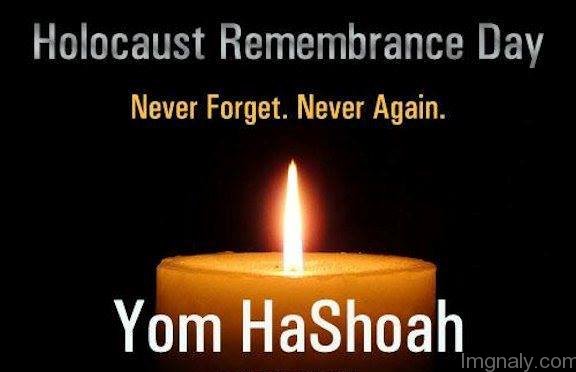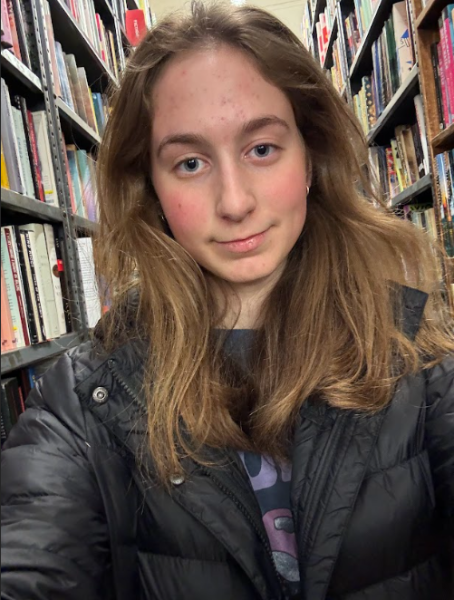Holocaust education is essential for understanding the past

Photo courtesy of Community Synagogue of Rye
Yom Hashoah, the Israeli Holocaust Rememberance day which this year began the evening of April 17 and ended the evening of April 18 is commemorated by Jews all over the world.
May 1, 2023
On May 8, 1945, the allies celebrated VE-day, also known as Victory in Europe Day, as the day Germany officially and unconditionally surrendered to end the European theater of World War II. Today, not even a century later, the lessons of the Holocaust are distorted by the lack of education on this incredibly important and recent part of history. Thus, it is vital that Maryland establish mandatory Holocaust education in middle and high schools.
The first ever 50-state survey of Millennials and Gen-Z knowledge of the Holocaust was conducted in 2020, and the results were disturbing. The survey, conducted by the Conference on Jewish Material Claims Against Germany, an organization that “represents the world’s Jews in negotiating for compensation and restitution for victims of Nazi persecution and their heirs”, revealed that 63 percent of respondents nationally did not know that six million Jews were murdered during the Holocaust, with 36 percent of respondents believing that less than two million Jews perished. Furthermore, despite the creation of thousands of concentration camps and ghettos by Germany, 48 percent of respondents could not name a single one.
Maryland ranked among the states with the lowest levels of Holocaust knowledge.
64 percent of Maryland respondents did not know that six million Jews were killed and 55 percent could not name a single concentration camp. Additionally, 13 percent of respondents in Maryland believe that Jews caused the Holocaust, two percent above the national average. Despite these staggering numbers, 75 percent of Maryland respondents believe it is “important to teach about the Holocaust, in part, so it doesn’t happen again”.
Maryland is one of 27 states that does not mandate Holocaust education but that could soon change. Maryland bill SB0837 “Study of the Holocaust (Stop the Hate)”, currently in committee in the Maryland State Senate, would require the Maryland State Department of Education to develop guidelines and add Holocaust instruction to the curricula for public and some private schools. While a similar bill was struck down in 2019, the extreme rise in antisemitic incidents in Montgomery County and across the state demonstrates that it is imperative for this bill to pass.
According to the United Nations Educational, Scientific and Cultural Organization (UNESCO) Holocaust education is primarily the “historical study of the systematic, bureaucratic, state-sponsored persecution and murder of six million Jews by Nazi Germany and its collaborators.” Holocaust education teaches students about the fragility of all societies and institutions, particularly those designed to protect the rights of all. It demonstrates the danger of discrimination, prejudice and scapegoating while emphasizing “the potential for extreme violence and the abuse of power; and the roles that fear, peer pressure, indifference, greed and resentment can play in social and political relations”.
The appropriation, distortion and abuse of Holocaust imagery, symbols and facts has recently been on the rise. During the COVID-19 pandemic many people compared mask requirements and vaccine cards to Nazi Germany, some going as far as to wear yellow stars of David, as Jews were forced to do in the German Reichland during World War II. Public figures and politicians have further perpetuated these comparisons and falsehoods by making political and social analogies. Locally in Montgomery County, swastikas and anti-semitic graffiti have appeared in all sorts of places and objects such as walking trails, buildings and school desks. Holocaust distortion has been normalized in today’s society in large part due to the lack of Holocaust education and inability to identify and correct inherent falsehoods.
Make no mistake, Holocaust education should not and cannot be considered the solution to antisemitism, but it is a starting point in educating about the dangers of antisemitism and the Holocaust. The Holocaust was not the first and certainly not the last act of antisemitism. Antisemitism holds deep roots in history and society that go beyond the Holocaust, but Holocaust education is the first step towards the process of dismantling antisemitism. Maryland bill SB0837 “Study of the Holocaust (Stop the Hate)” must pass.


